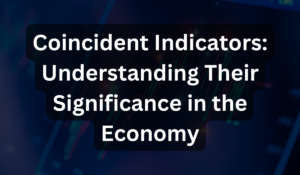When it comes to forex trading, understanding the capital account is crucial for success. In this blog post, we will delve into the concept of the capital account, its definition, and its significance in the forex market. So, let’s dive in!
What is the Capital Account?
The capital account in forex trading refers to the financial account that tracks the flow of capital into and out of a country. It records transactions involving financial assets, such as investments, loans, and securities, between residents and non-residents. Essentially, the capital account measures the net change in a nation’s ownership of assets.
In simpler terms, the capital account represents the investment and borrowing activities between a country and the rest of the world. It includes both short-term and long-term capital movements, such as foreign direct investment, portfolio investments, and loans.
Significance of the Capital Account in Forex Trading
The capital account plays a vital role in forex trading as it influences the exchange rate of a country’s currency. When capital flows into a country, it typically leads to an appreciation of its currency. On the other hand, capital outflows can cause depreciation of the currency.
Forex traders closely monitor the capital account to assess the attractiveness of a country’s economy to foreign investors. A positive capital account indicates that the country is receiving more capital inflows than outflows, suggesting a favorable investment climate. This can lead to increased demand for the country’s currency, driving its value higher.
Conversely, a negative capital account suggests that the country is experiencing more capital outflows than inflows. This may indicate a lack of confidence in the country’s economy, leading to a depreciation of its currency.
Factors Affecting the Capital Account
Several factors can influence the capital account in forex trading. Some of the key factors include:
- Interest Rates: Higher interest rates in a country can attract foreign investors, leading to capital inflows and a positive capital account.
- Economic Stability: Countries with stable political and economic environments are more likely to attract foreign investments, contributing to a positive capital account.
- Government Policies: Government regulations and policies can impact capital flows. For example, restrictions on foreign investments can deter capital inflows.
- Market Sentiment: Investor sentiment and confidence in a country’s economy can influence capital flows.
Conclusion
In summary, the capital account plays a significant role in forex trading as it reflects the flow of capital into and out of a country. Understanding the capital account is crucial for forex traders, as it provides insights into a country’s economic attractiveness and can impact the value of its currency. By closely monitoring the capital account, traders can make informed decisions and capitalize on forex market opportunities.
Remember, staying informed about global economic trends and factors affecting the capital account can help you navigate the forex market effectively.








